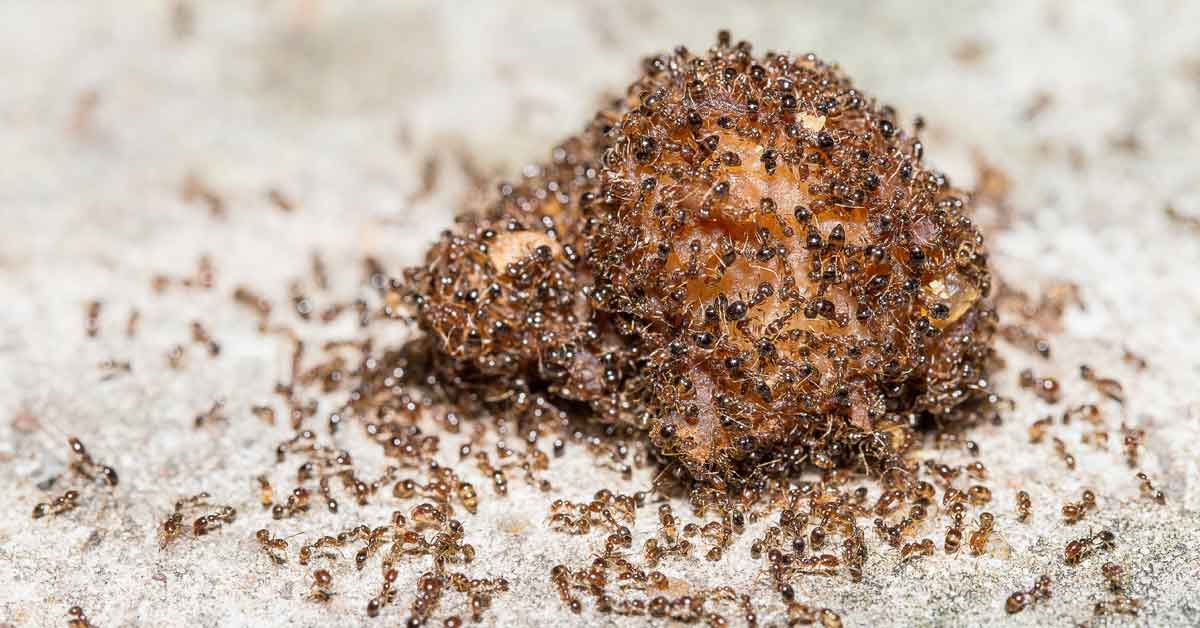Ecological Impact of Bug Control: Harmonizing Performance With Sustainability
The ecological influence of insect control is a vital concern that calls for a delicate balance between accomplishing performance in making certain and managing insects sustainability of our ecological communities. From the use of damaging chemicals that permeate right into our soil and water to the unplanned consequences on non-target types, the effects of conventional insect control methods are far-ranging.
Damaging Chemicals in Insect Control
The application of hazardous chemicals in insect control presents substantial environmental and health and wellness risks that call for mindful factor to consider and reduction techniques. Pesticides, pesticides, and herbicides are typically used to eradicate pests, however their widespread application can lead to unintended effects. These chemicals can pollute dirt, water sources, and the air, influencing not just the targeted insects yet also helpful bugs, wild animals, and human beings.

To attend to these threats, integrated parasite management (IPM) strategies are being advertised as a much more lasting option. IPM entails a mix of approaches such as organic control, habitat control, and the targeted use of pesticides as a last hope (ant control hendersonville nc). By adopting a holistic approach to pest control, we can decrease the ecological and wellness effects connected with unsafe chemicals while properly taking care of pest populations
Effect On Non-Target Types
Taking into consideration the unintended consequences of pest control methods, the effect on non-target varieties is a crucial aspect that needs complete analysis. While bug control procedures intend to target particular insects, other organisms in the environment might be unintentionally affected. Non-target varieties, consisting of helpful insects, birds, creatures, and even plants, can suffer indirect or direct injury from pesticide applications or biological control methods.
Chemicals can have sub-lethal or lethal effects on non-target varieties. Pesticides made to combat a certain insect parasite may hurt pollinators like bees or natural predators such as ladybugs. Additionally, chemical deposits can collect in the atmosphere, impacting non-target organisms over time. Similarly, organic control representatives, if not species-specific, can posture dangers to unintentional targets, interfering with the environmental balance.
To alleviate the influence on non-target species, integrated bug monitoring (IPM) approaches that emphasize an alternative technique to pest control are advised. These methods prioritize using eco-friendly techniques, reducing damage to valuable microorganisms while successfully handling pest populaces. Carrying out complete risk analyses and keeping an eye on the outcomes of pest control initiatives are vital steps in safeguarding non-target species and advertising total community wellness.
Soil and Water Contamination
Unexpected environmental repercussions of bug control techniques prolong past influencing non-target species, with considerable ramifications for dirt and water contamination - termite control services. Pesticides, herbicides, and chemical fertilizers utilized in parasite control can seep into the soil and pollute groundwater, posturing a threat to both earthbound and marine communities.
Water contamination is another vital concern associated with bug control techniques. To reduce dirt and water contamination from insect control tasks, integrated bug monitoring techniques that prioritize sustainability and reduce chemical inputs are critical.
Air Air Pollution From Pesticide Use
Exposure to airborne chemicals during agricultural applications presents a significant problem for air pollution control steps. They can volatilize right into the air and type volatile natural substances (VOCs) and other air-borne contaminants when pesticides are sprayed onto crops - ant control services. These chemicals can add to the formation of ground-level ozone, a major element of smog that can have destructive impacts on human health, plant productivity, and overall air quality. Additionally, pesticide drift, where pesticides are carried by the wind to unexpected locations, can bring about the contamination of neighboring ecosystems and water bodies.

Strategies for Lasting Parasite Control
In the realm of agricultural methods, applying lasting pest control methods is paramount for preserving eco-friendly equilibrium and protecting plant returns. Sustainable bug control emphasizes making use of eco-friendly methods to manage parasite populations successfully while reducing injury to non-target organisms and ecosystems. Integrated Bug Management (IPM) is an extensively embraced approach that incorporates biological, social, physical, and chemical control methods to attain long-term parasite management services.
Plant rotation and diversity are additionally efficient techniques to interfere with pest life cycles and produce much less beneficial problems for insects to grow. Eventually, by incorporating these lasting pest control approaches, farmers can accomplish a balance in between pest administration effectiveness and ecological stewardship.
Conclusion
In conclusion, the environmental effect of pest control methods should be very carefully taken into consideration to stabilize performance with sustainability. Harmful chemicals used in parasite control can cause soil and water contamination, air pollution, and injury non-target types - ant control services. It is essential to implement lasting pest control strategies to lessen these negative effects on the setting and promote a healthier ecological community for future generations
By embracing a holistic technique to pest control, we can reduce the ecological and health effects associated with dangerous chemicals while effectively taking care of pest populaces.
To reduce the air pollution triggered by pesticide use, it is crucial to embrace integrated parasite administration techniques that focus on the usage of non-chemical pest control approaches, such as plant rotation, all-natural killers, and resistant plant ranges. Sustainable insect control emphasizes the usage of eco pleasant approaches to take care of bug populaces properly while reducing damage to non-target organisms and ecosystems. Integrated Pest Administration (IPM) is a commonly adopted approach that integrates biological, social, physical, and chemical control techniques to attain long-lasting pest administration remedies.
Comments on “Advanced Termite Control: Proven Techniques for Getting Rid Of Termite Infestations”